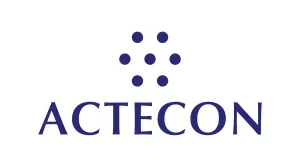Online platforms play a prominent role in innovation and influence growth. Furthermore, online platforms offer unique opportunities to businesses to reach customers on a global scale and serve as an interface between those customers and businesses. Yet it is also the case that as platforms become more and more powerful, the businesses may no longer be able to freely negotiate with these platforms and they may be forced to accept some onerous terms.
Given the importance of that context, the European Commission ("Commission") adopted on 25 October 2017 an initiative that identifies harmful trading practices in platform-to-business ("P2B") relations and proposes measures intending to improve business users' rights vis-à-vis online platforms.
Below, the potentially harmful practices of online platforms and the solution proposals put forward to tackle those practices are addressed. Following these a brief evaluation as to the role of competition law with respect to the significant market power held by some platforms is put forward.
1. Harmful Trading Practices
Businesses' dependency on online platforms, combined with the significant negotiation power of those latter could lead to unfair outcomes in P2B relations. According to the Commission's findings, the harmful trading practices certain online platforms resort to are as follows:
- the frequent and unannounced unilateral modification of terms and conditions, without enabling businesses to negotiate;
- the removal of businesses' products and services from e-commerce websites and/or social media accounts or even the suspension of their accounts without granting them the opportunity to oppose;
- The lack of transparency in online platforms' practices (especially in the framework of rankings and advertising placement);
- The positive discrimination made to online platforms' own products and services or the discrimination made between suppliers and sellers;
- Businesses' inability to transmit data or even to access them1;
- The lack of effective remedy to which businesses may resort to against the afore-mentioned problems2.
2. The Solution Proposals
The Commission put forward three packages of measures in order to tackle the said commercially harmful practices. Those packages could be achieved through industry intervention and/or EU rules:
a. Industry Intervention Triggered by EU Soft-Law
The EU can incentivize, via non-binding rules, transparency, efficient relief, and a better monitoring of online platforms. The action of industry could apply in the following circumstances: the monitoring of online platforms ecosystems; the increasing of the awareness of online platforms' users on the existing legal, commercial, and technical means of handling the harmful trading practices; the promotion of voluntary standards (including contractual terms and conditions) in favor of businesses; and the introduction of fairness principles in the framework of P2B relations.
Furthermore, industry could also undertake, in certain sectors, the structural or legal separation of online platforms' intermediary activities from their secondary services such as the payment services.
b. Industry Intervention and EU Legislation Combined
Under this proposal, the Commission suggests three options.
First, the Commission proposes to make it compulsory, via EU legislation, for online platforms to provide an effective remedy to businesses and to incentivize, via EU non-binding measures, online platforms to act in the circumstances above-mentioned in 1.
Second, the EU legislation could introduce a minimum transparency obligation, complemented with EU soft-law and industry-led intervention.
Third, the EU legislation could, according to the Commission, establish a new and independent dispute settlement mechanism and stipulate principles on transparency and fairness, which could then be codified by industry (this codification might take the form of codes of conduct or of standards).
Eventually, in addition to the foregoing, the EU legislation could simply prohibit certain harmful trading practices.
c. Detailed EU Legislation
The Commission proposes, in this context, that EU legislation regulates the platform ecosystems in a detailed manner. In the Commission's view, such a legislation would provide solutions to issues particular to P2B relations by establishing detailed rules on remedy mechanisms. Besides, a detailed EU legislation would also regulate areas such as transparency, information provision, data access or use, access to justice, or discrimination.
3. What about Competition Law
The aim and the reasoning of the solution proposals are quite similar to those of consumer protection regulations. Both constitute balancing mechanisms that aim to curb the excessive negotiation power of one party to ensure that the weaker party would not be forced to accept unfair terms against its will. In a way, such rules might fundamentally serve to accommodate the freedom of contract in the modern economic relations where there are significant asymmetries between the negotiation powers and capabilities of parties.
Aside from that, the solution proposals are also similar to consumer protection regulations for being "general" principles that could be applied to all P2B relations. Yet, such general principles are not well equipped to solve certain problems that are much more specific. For example, although the consumer protection regulations are quite useful when dealing with transactions between consumers and average businesses, this is not the case for addressing the problems that may arise due to excessive market power of some specific businesses. In such cases, the only safeguard of an efficient and competitive marketplace and of consumer welfare is competition law. The same is also true for P2B relations. Although these solution proposals may pave the way for more fairness in P2B relations in general, it is crucial that competition law is relied on to remedy abusive practices of platforms that possess significant market power.
In order to do so, it is necessary to develop tools that would allow competition authorities to define the relevant markets in which platforms operate and to assess the market power of the platforms properly. Furthermore, it is also critical to understand the nature of vertical relations between platforms and businesses. The latest developments in the EU (the Google decision of the Commission3, the Booking.com decisions of various member states and the Facebook proceedings initiated by the Bundeskartellamt4) as well as in Turkey (Booking.com5 and Yemeksepeti.com6 decisions of the Turkish Competition Board and the ongoing Google Investigation7) show that P2B relations are and will continue to be a major issue for competition authorities.
Footnotes
1 e.g. some businesses cannot access the information of clients they deal through online platforms and this situation creates an obstacle to shifting to another platform or implementing targeted marketing practices.
2 This is principally explained by the difficulty of legal recourse in case the online platforms are located outside the EU and the fear of commercial retaliation stemming from the afore-mentioned dependency on online platforms.
3 Case AT.39740 dated 27.06.2017
5 TCA's decision dated 09.06.2016 and numbered 16-20/347-156
6 TCA's decision dated 05.01.2017 and numbered 17-01/12-4.
The content of this article is intended to provide a general guide to the subject matter. Specialist advice should be sought about your specific circumstances.



